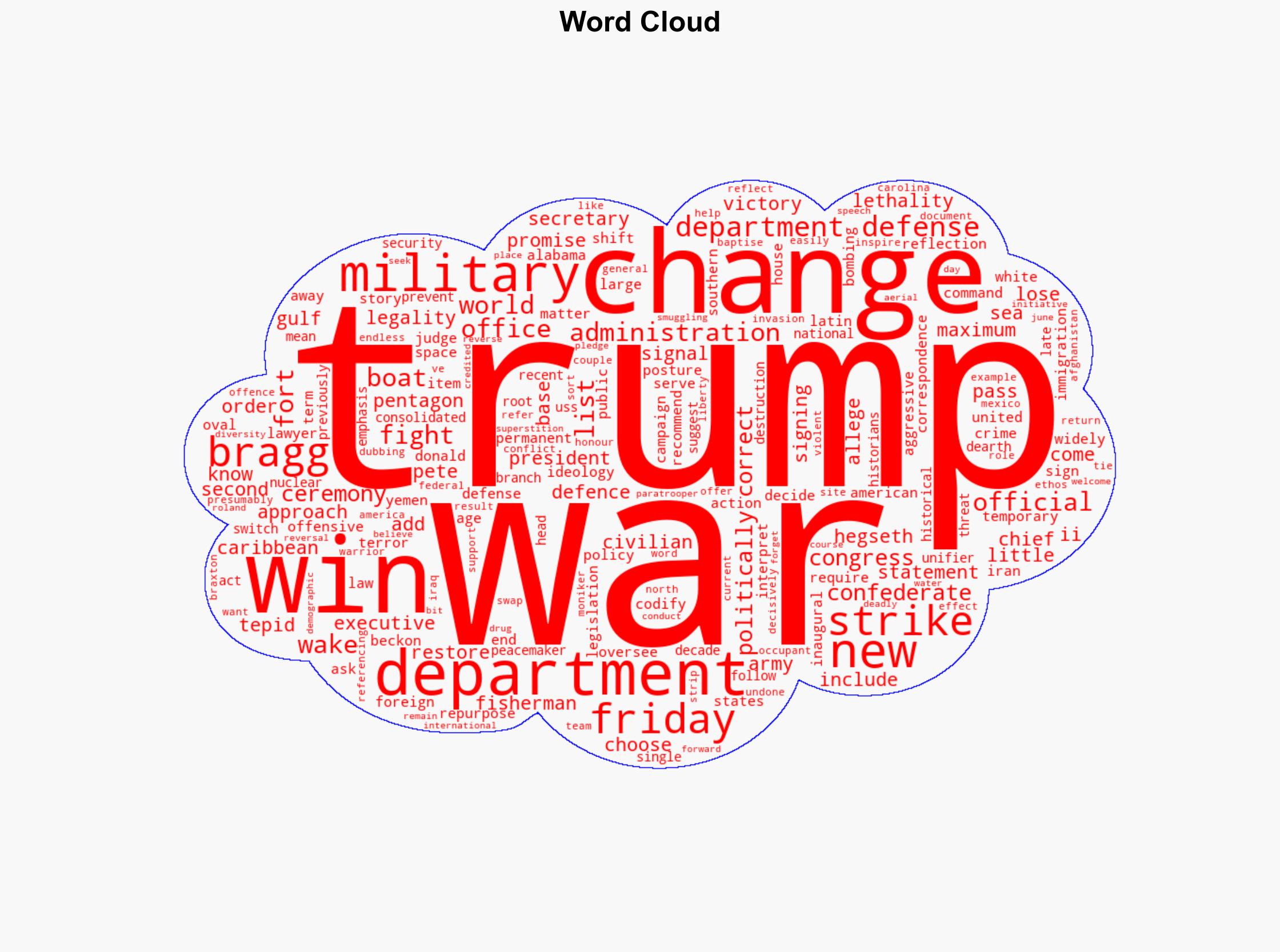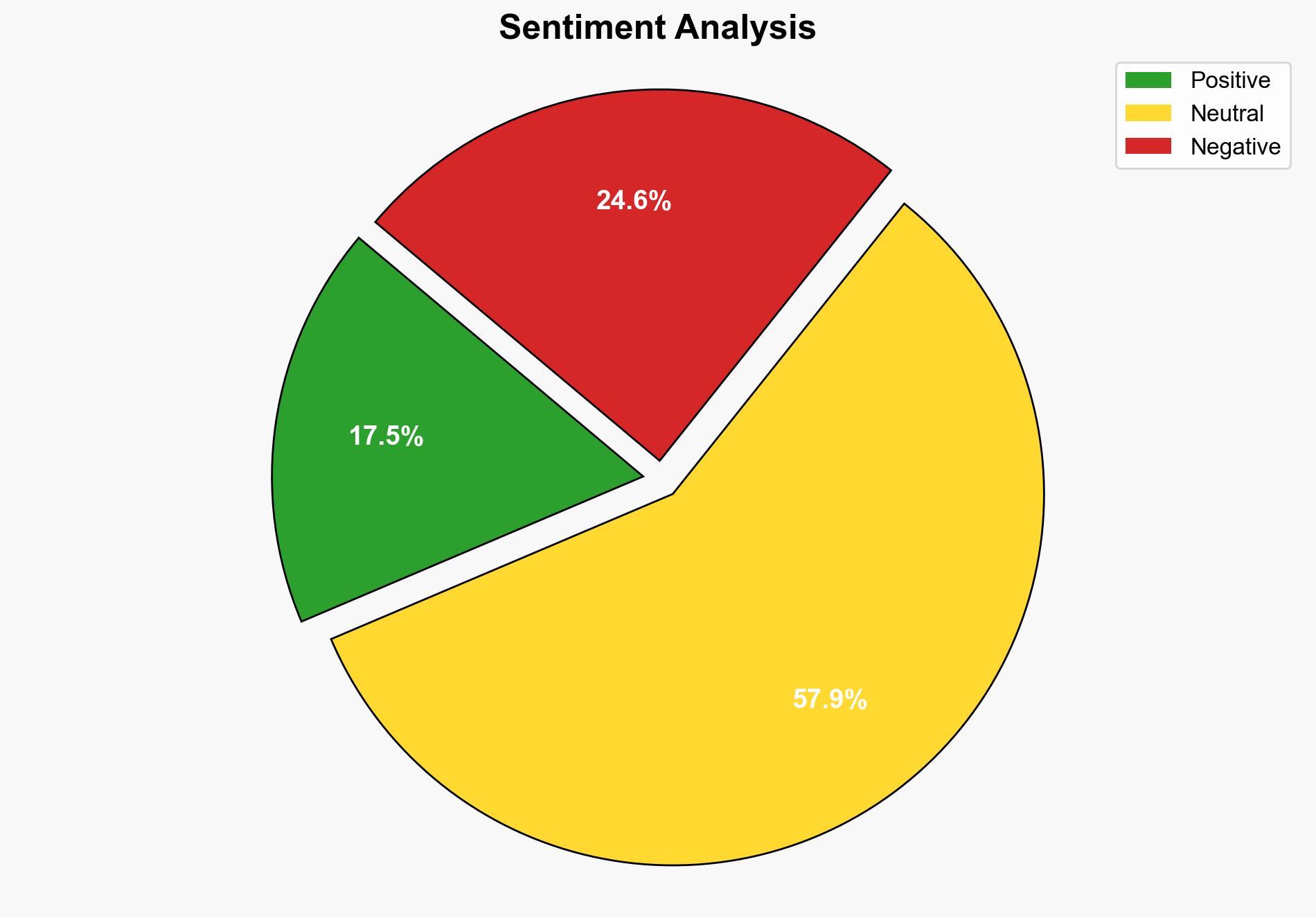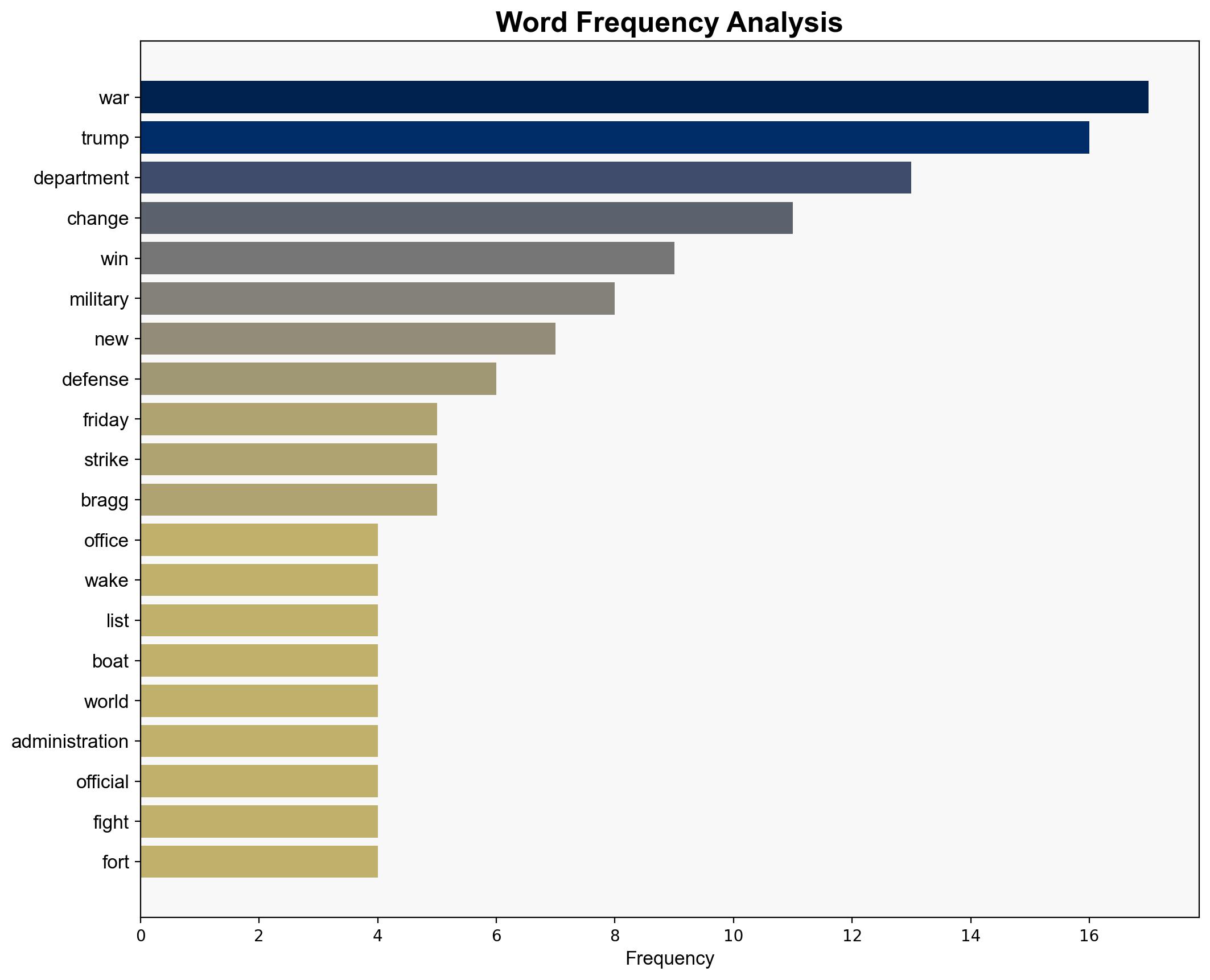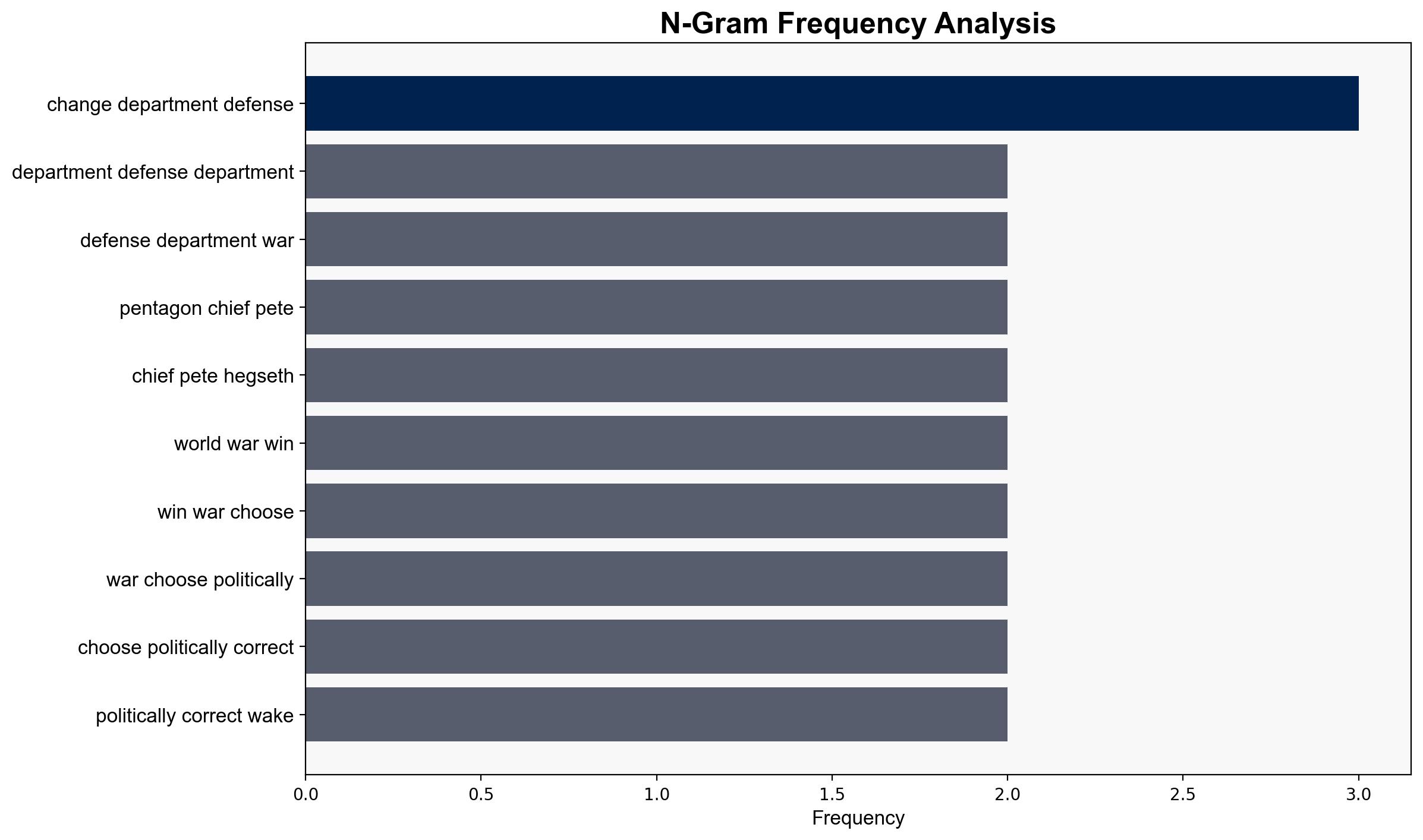Trump symbolically changes Department of Defense to Department of War – Al Jazeera English
Published on: 2025-09-05
Intelligence Report: Trump symbolically changes Department of Defense to Department of War – Al Jazeera English
1. BLUF (Bottom Line Up Front)
The symbolic change from the Department of Defense to the Department of War suggests a shift towards a more aggressive military posture. The most supported hypothesis is that this change is intended to signal a renewed focus on military assertiveness and victory. Confidence level: Moderate. Recommended action: Monitor legislative developments and military policy changes for further indications of strategic shifts.
2. Competing Hypotheses
1. **Hypothesis 1**: The renaming is a symbolic gesture to rally domestic support by appealing to a more traditional, assertive military identity, reflecting a shift towards a more aggressive foreign policy.
2. **Hypothesis 2**: The change is primarily a political maneuver to distract from domestic issues and consolidate support among certain voter demographics, without significant changes to actual military policy.
Using Analysis of Competing Hypotheses (ACH 2.0), Hypothesis 1 is better supported by the context of recent military actions and statements emphasizing military victory and assertiveness.
3. Key Assumptions and Red Flags
– **Assumptions**: The change will lead to a tangible shift in military policy. The public and international community will perceive this as a significant change in U.S. military posture.
– **Red Flags**: Lack of legislative backing for a permanent name change. Potential overestimation of domestic and international reactions.
– **Blind Spots**: The actual impact on military operations and international relations remains uncertain.
4. Implications and Strategic Risks
– **Patterns**: Increased military assertiveness could lead to heightened tensions with adversaries.
– **Cascading Threats**: Potential escalation in regions like the Middle East or Latin America.
– **Economic Risks**: Increased defense spending could strain the budget.
– **Geopolitical Risks**: Allies may be concerned about unilateral U.S. actions.
– **Psychological Dimensions**: Domestic perception of military strength may bolster or polarize public opinion.
5. Recommendations and Outlook
- Monitor legislative actions for any moves to codify the name change.
- Engage with allies to reassure them of U.S. commitments and intentions.
- Scenario Projections:
- **Best Case**: The change strengthens U.S. deterrence without escalating conflicts.
- **Worst Case**: Increased military actions lead to international conflicts.
- **Most Likely**: Symbolic change with limited immediate impact on military operations.
6. Key Individuals and Entities
– Donald Trump
– Pete Hegseth
7. Thematic Tags
national security threats, military strategy, geopolitical tensions, U.S. foreign policy




